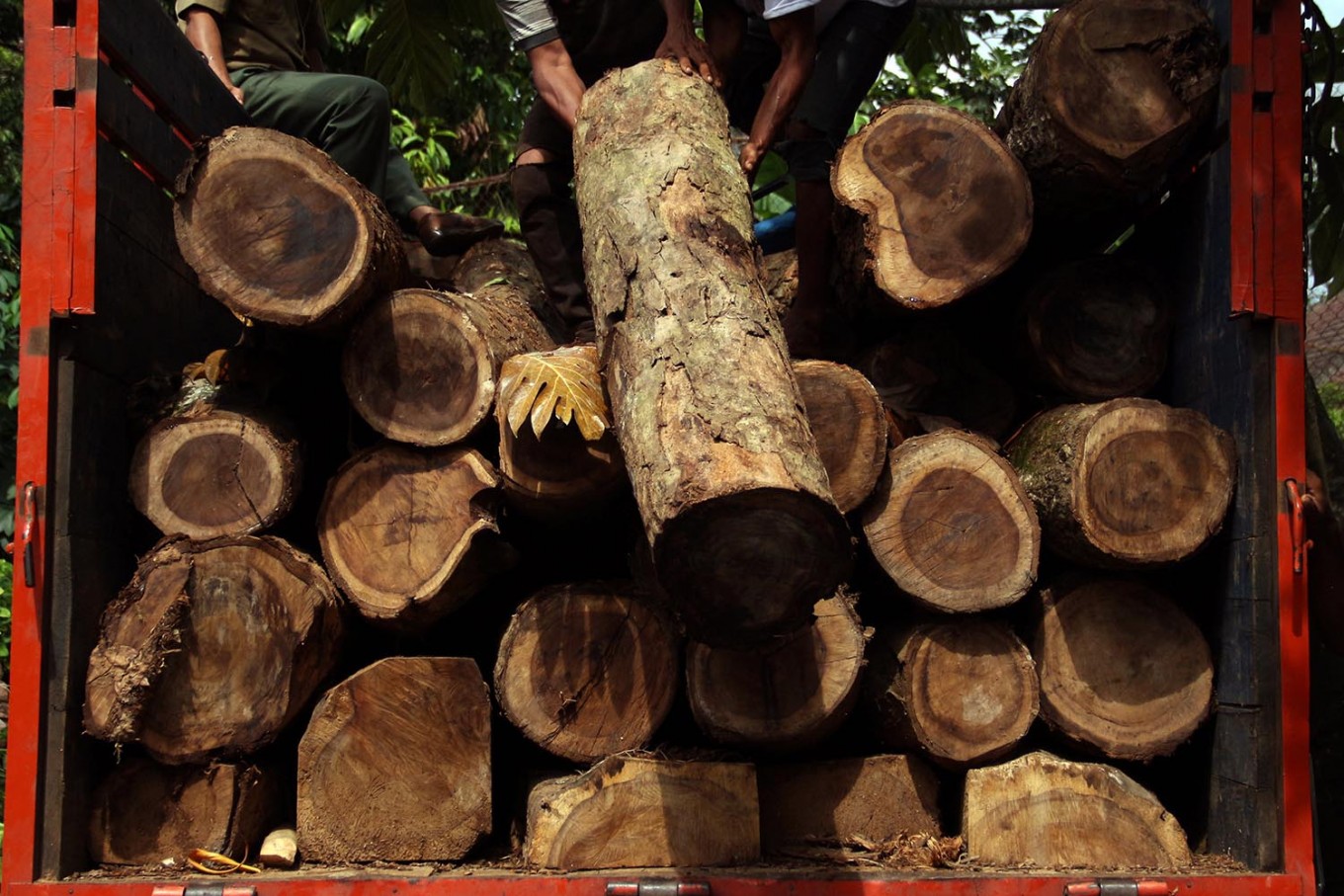Popular Reads
Top Results
Can't find what you're looking for?
View all search resultsPopular Reads
Top Results
Can't find what you're looking for?
View all search resultsExperts call for omnibus bill to streamline natural resources regulations
Change text size
Gift Premium Articles
to Anyone
A
s the government looks to pass omnibus bills on job creation and taxation, experts have called for the drafting of an omnibus bill to solve the overlapping laws and regulations related to natural resources use and environmental preservation.
Maria Sumardjono, an agrarian law professor at Gadjah Mada University in Yogyakarta said the omnibus law could serve as a general law to regulate the use and protection of Indonesia’s natural resources.
She added that creating the law would also fulfill People’s Consultative Assembly’s Decree No. IX/2001, which has mandated agrarian and natural resources management reform for almost 20 years.
“Ideally, other sectoral laws that regulate forestry, geothermal minerals and coal and so on would follow the [omnibus law],” she said during a discussion on natural resources hosted by the Corruption Eradication Commission (KPK) on Wednesday.
The idea was inspired by President Joko “Jokowi” Widodo, who has drafted several omnibus bills during his current term to streamline several prevailing laws in multiple sectors. So far, the government has proposed omnibus bills for job creation and taxation, with the bill for the development of the new capital city still being drafted.
Though meant to simplify regulations and attract investment, the omnibus bill on job creation has been severely criticized for revising several laws that would affect multiple sectors, such as significantly relaxing environmental standards for business activities by no longer requiring an environmental impact analysis (Amdal).
Maria said that a natural resources omnibus bill would be easier to draft as it would revise regulations under the same philosophy and framework of natural resources uses for the prosperity of the people stipulated in the 1945 Constitution, compared to the omnibus bill on job creation, which is planned to revise 79 laws covering multiple sectors.
Muhammad Ramdan Andri Gunawan Wibisana, a state administration doctoral student from the University of Indonesia in Jakarta, agreed that the omnibus law should be made as a general legal basis for natural resources, adding that the drafters should learn from past failed attempts of issuing a general natural resources law.
In April 2004, drafts for an agrarian resource bill were issued to the House of Representatives but the deliberation was scrapped after then-president Susilo Bambang Yudhoyono was elected later that October. Similarly, the deliberation of a natural resources management bill was started and scrapped in 2002.
Civil society group Auriga Nusantara activist Mumu Muhajir said there were around 26 laws regulating natural resources, including laws on environment, agrarian and spatial planning, forestry and agriculture, mining and energy, as well as maritime affairs and fisheries.
A KPK analysis in 2018 discovered several inconsistencies and overlaps in the laws.
Additionally, the KPK analysis found that the laws did not regulate, among other things, procedures for objection and resolution of disputes outside of trials, distribution of benefits, and also did not include any conflict of interest regulation.
Environment and Forestry Ministry secretary-general Bambang Hendroyono hoped that an omnibus law on natural resources could assure legal certainty in managing the country’s natural riches and protect people living in forest areas.
“To the people living in areas of conservation and production forest, the [omnibus bill] could provide legal and human rights certainty,” he said.










